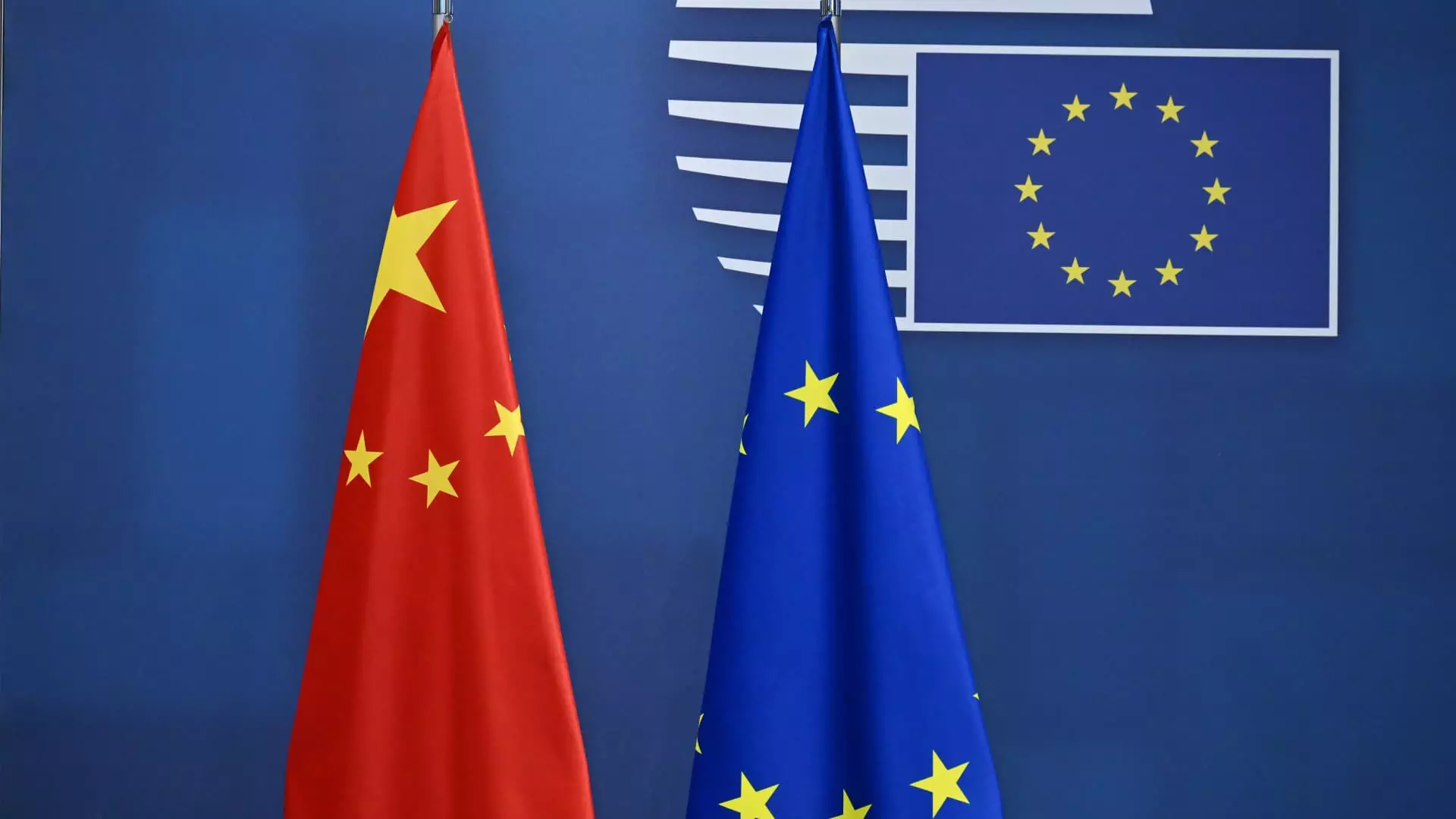The recent flare-up in U.S.-China trade tensions has overshadowed the more insidious fractures forming between Europe and China, signaling a disturbing shift in the global economic landscape. For years, these two giants appeared poised for cooperation, banking on mutual benefits that could have bolstered economic stability. Instead, recent events reveal a tense, often hostile competitive posture that is threatening to unravel decades of diplomatic progress. It’s no longer an issue of healthy competition; it’s a perilous game of strategic dominance, with risks far outweighing opportunities. The narrative of economic integration dissolves before our eyes — replaced by a relentless scramble for national advantage designed to protect fragile industries at the expense of global stability.
The EU’s recent restrictions on Chinese firms in the medical sector symbolize a broader disillusionment that is swallowing the once-promising relationship. China’s retaliatory import curbs on European products represent more than a tit-for-tat; they expose a fundamental distrust that has permeated diplomatic corridors and trade corridors alike. This isn’t just a dispute over tariffs or market shares; it is an emblem of geopolitical shifts that threaten to tip the world into a new era of economic nationalism and protectionism. When nations prioritize short-term industrial gains over long-term cooperation, the ripple effects threaten not only market stability but also are poised to deepen inequality, inhibit innovation, and accelerate fragmentation in the global supply chain.
Unraveling the Illusion of Mutual Benefit
At the heart of this turmoil lies a stark contradiction: the EU and China are increasingly on a collision course, driven by incompatible economic policies and competing visions of sovereignty. China’s overcapacity, coupled with its strategic use of trade as a weapon, exemplifies a nation seeking to assert control through economic coercion. Its export-driven model clashes with Europe’s intent to defend its industrial base — a fundamental tension that underscores the current crisis. The EU’s efforts to bolster its economic autonomy are viewed by Beijing as an existential threat, prompting Beijing to deploy trade tools like tariffs on brandy and other goods. These actions are not isolated; they are part of a broader pattern of weaponizing trade to influence European political and economic decisions.
Meanwhile, Europe’s response appears increasingly defensive and fragmented. The continent faces a dilemma: either capitulate to China’s strategic push or double down on protectionist measures that threaten to isolate it from emerging global markets. The escalation of tariffs on Chinese electric vehicles, for instance, reveals a persistent unwillingness to see beyond immediate benefits, discounting the long-term damage to global cooperation. More critically, Europe’s trade deficit with China continues to balloon, exposing its vulnerability to shifts in Chinese trade policies that are driven less by economic logic and more by geopolitical posturing.
This escalating hostility underscores a fundamental flaw: both sides are acting out of fear and suspicion rather than a balanced pursuit of mutual growth. It’s not a healthy competition but a destructive race to the bottom, risking the disintegration of global supply chains upon which millions depend. The hope for shared prosperity is fading quickly amid threats of strategic decoupling and economic brinkmanship.
The Myth of U.S. as a Neutral Player
While the world fixates on U.S.-China tensions, it is equally important to recognize how U.S. policies have inadvertently contributed to this dangerous impasse. The Trump-era tariffs, which sought to protect American manufacturing, inadvertently created a power vacuum exploited by China and prompted Europe to pursue its own protectionist strategies. The naive expectation that these tariffs might foster closer cooperation among global economic powers proved tragically misguided. Instead, they exacerbated fragmentation, deepening mistrust and incentivizing strategic resilience rather than cooperation.
The perceived opportunity for China and Europe to unite against American tariffs was always superficial. Beijing’s confidence in its economic standing — bolstered by its recent trade victories with the United States — has motivated a more assertive, often aggressive, trade stance. The Chinese leadership perceives itself as having gained the upper hand, emboldening Beijing’s use of trade as a geopolitical lever rather than merely a commercial tool.Europe, in this context, appears increasingly isolated, vulnerable to China’s strategic gambits, and at risk of succumbing to a colonial-like competition that threatens to reconfigure global economic order into a zero-sum game.
The illusion that U.S. tariffs could serve as a catalyst for multilateral negotiations has been shattered by realities on the ground. The ongoing competition between these economic titans is less about global prosperity and more about asserting supremacy. Both the EU’s increased protectionism and China’s retaliatory measures are symptoms of a deeper strategic malaise; they underscore that economic policy is now inseparable from geopolitics, with global stability hanging precariously in the balance.
The Path Forward: Dangers of Economic Fragmentation
The trajectory cities like Brussels and Beijing are charting leads to a disconcerting horizon: a fractured global economy carved into competing blocs and trade spheres. The ongoing disputes over rare earths, EV tariffs, and medical supplies are not isolated instances but symptoms of a deeper malaise that risks destabilizing global trade for generations. The true peril lies in a world where economic self-sufficiency and strategic independence become the only virtues, leaving behind the days of mutually beneficial trade and open dialogue.
Europe’s turn toward increased protectionism, while understandable as a defensive measure, may ultimately backfire by isolating it from the innovation and growth that can emerge from international cooperation. Meanwhile, China’s willingness to use trade as leverage raises serious questions about the durability of the global rules-based system. Its aggressive stance threatens to undo decades of diplomatic progress, replacing dialogue with coercion, and partnership with suspicion.
The real challenge is whether global leaders can resist falling into this trap of strategic nationalism. Instead of doubling down on protectionist measures, there needs to be a conscious effort to recalibrate economic relations based on transparency, fairness, and mutual respect. Without such efforts, the world risks entering a new Cold War powered not by ideological differences but by economic rivalry, with devastating consequences for development, stability, and the very fabric of international cooperation.



Leave a Reply